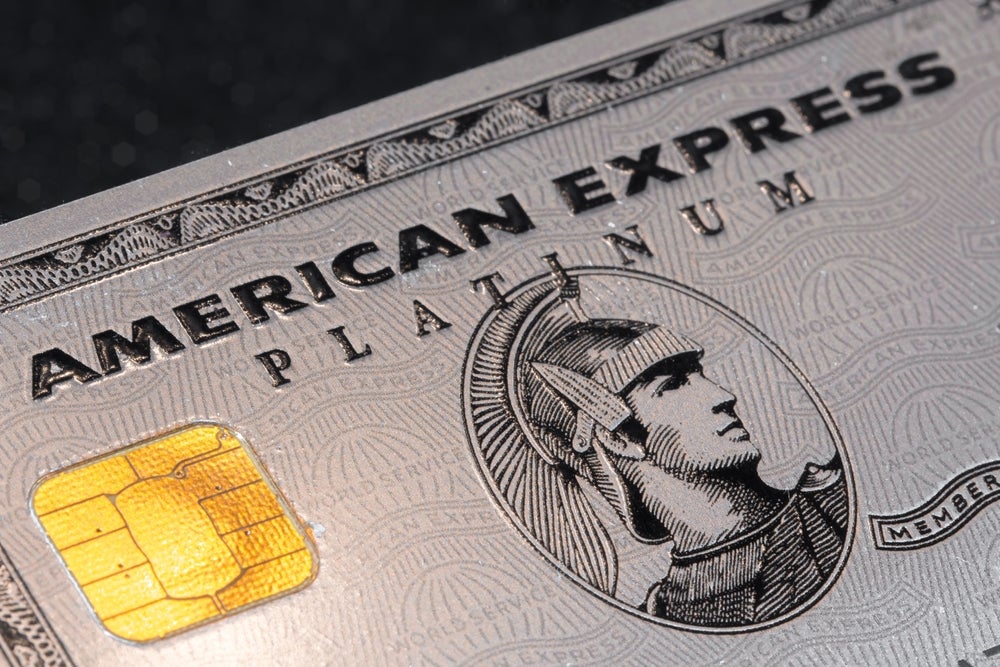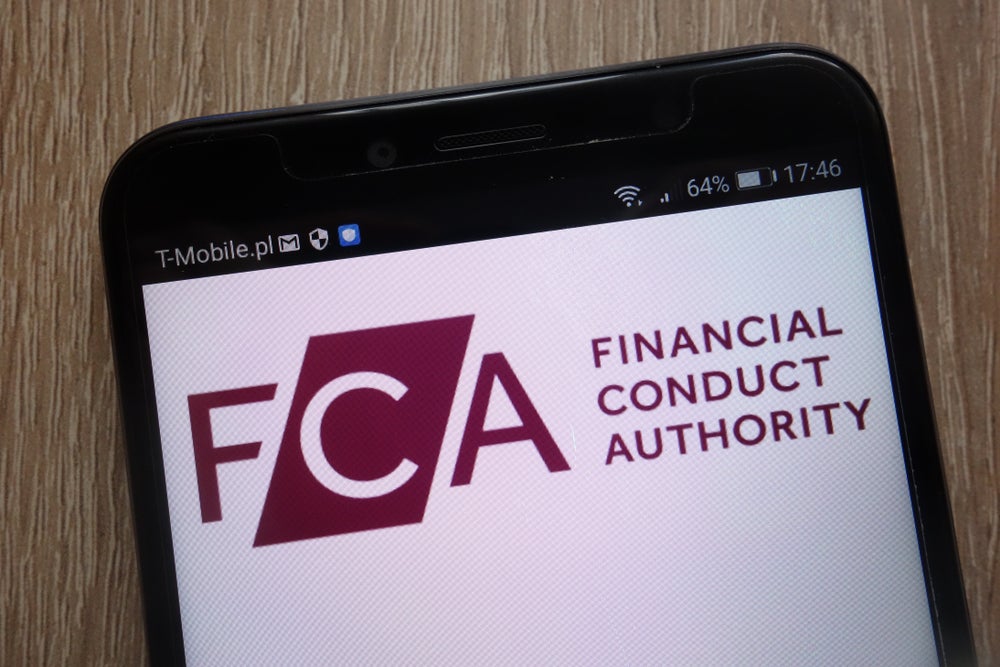Nigeria, Africa’s third-largest economy, is showing phenomenal
growth rates for all forms of electronic payment, including cards.
There are major challenges to overcome if issuers and card schemes
wish to spur growth and drive down usage of cash, but efforts are
gathering momentum. Victoria Conroy reports.
Nigeria is a country that has seen phenomenal transformation of
its payment systems in just a few short years. Massive
infrastructure investments, network interoperability advances and a
trend of bank consolidation have spurred growth in all forms of
electronic payments, and in the last four years, international
scheme-branded cards have been introduced to the market. It would
appear that Nigeria is ripe for growth in card payments.
Reforms in the country’s electronic banking system began in
2004, and on the whole they have been extremely successful.
Nigeria’s government has embarked upon a strategic plan to grow its
economy to be among the 20 largest economies in the world by the
year 2020, under a project titled: Financial System Strategy
2020. One of the objectives of this plan is for electronic
payments to form the bedrock of all financial transactions.
However, significant challenges remain. In a country of 140
million people, less than 10 million are classed as banked, and it
is estimated by the Central Bank of Nigeria that over NGN700
billion ($5.95 billion) remains outside the reach of the banking
system.
One of the steps of the 2020 strategy is that by the end of
2009, all businesses with more than 50 employees will be
required
to make salary payments via direct deposit into a bank account,
which will significantly reduce the number of unbanked people, and
lead to greater debit card usage.
Many banks and non-banks are also focusing on delivering banking
services through lower-cost established delivery channels like
mobile phones – Nigeria had around 55.3 million mobile phone
customers in 2007, compared to 32.2 million in 2006.
How well do you really know your competitors?
Access the most comprehensive Company Profiles on the market, powered by GlobalData. Save hours of research. Gain competitive edge.

Thank you!
Your download email will arrive shortly
Not ready to buy yet? Download a free sample
We are confident about the unique quality of our Company Profiles. However, we want you to make the most beneficial decision for your business, so we offer a free sample that you can download by submitting the below form
By GlobalDataIn terms of card penetration levels, according to figures from
card network InterSwitch obtained by CI, there were around
24.2 million debit and cash cards in circulation by July 2008, with
over 5,894 ATMs (compared to seven in the entire country in 2002)
and 9,873 POS terminals.
Figures concerning credit card numbers have not been made
available given that the market is at such an early stage, although
the last two years have seen several credit cards aimed at the
affluent consumer segment introduced to the market.
According to Guaranty Trust Bank, one of Nigeria’s card issuers,
by 2010, Nigerian banks will have jointly issued at least 40
million payment cards, with an increase in the number of ATMs and
POS terminals to 9,000 and 15,000 respectively. Payment
infrastructure development will depend on the level of hindrance
from unstable communications networks and power supplies, plus
resistance by some merchants.
However, Nigeria’s credit bureau infrastructure has been making
good progress since its inception in 2003. In mid-2007, several of
Nigeria’s leading banks teamed up with Accenture and the
International Finance Corporation to establish the first
bank-sponsored credit bureau, the Credit Reference Company, while
two other independent credit bureaus have also been
established.
The Central Bank of Nigeria is still working on a legal
framework governing credit bureau data, and until this comes into
being, it is likely that Nigerian lenders will extend lending only
to those high net worth borrowers representing the least risky
customers.
The problem for the time being is obtaining data on prospective
borrowers, many of whom possess no formal paperwork or
identification in a country hampered by a lack of electronic
infrastructure.
Pricing, positioning and products
Despite a relative lack of payment infrastructure, card growth
rates are booming. There is not one single factor that has led to
growth, but rather a convergence of social, economic and industry
drivers occurring at the same time to bring forth the concept of
the cashless economy, something which Nigeria’s government is
strenuously encouraging in order to reduce the numbers of the
unbanked population. The number of Nigerian banks issuing
international cards such as MasterCard and Visa increased from just
one prior to 2003 to seven by the end of 2007, while eight others
were in the process of being licensed.
The year 2007 also saw the introduction of NGN-denominated
credit cards and Visa V Pay debit cards.
Card functionality has also been enhanced. Whereas five years
ago, most cards in Nigeria could only be used as ATM cards, they
can now be used to pay bills, make POS and internet purchases, and
transfer money between accounts, although the overwhelming majority
of card transactions remain ATM withdrawals.
But despite increasing sophistication in the depth and breadth
of credit card offerings that have appeared over the last three
years, there are still major obstacles to credit card growth. To
obtain a credit card from some Nigerian banks, applicants need a
domiciliary account, essentially a foreign currency account
denominated in US dollars. With the credit card market still at a
nascent stage, and with credit bureaus yet to be fully established,
holders of Nigerian credit cards (and debit cards linked to current
accounts) face stringent account opening requirements that are more
severe than those in developed card markets.
Most issuers require validated proof of income documents and
multiple ID specimens, such as passports, utility bills and
residence permits, character references and in some cases a
recommendation from an existing customer or bank employee. For
certain card products, the cardholder has to stump up typically 120
percent of the card’s credit or deposit limit as secured collateral
before the card can even be used, although the number of secured
cards requiring a minimal collateral deposit is declining.
Obviously, this can act as a deterrent for potential card
applicants, especially in a country with a high number of unbanked
people. Essentially, many ‘secured’ credit cards are in essence
prepaid cards, with true revolving credit cards only available to
affluent individuals.
For those that are approved to get credit cards, minimum
repayment requirements on revolving balances vary, but tend to be
between the 15-30 percent range, and in some cases, as high as 50
percent, compared to 3 percent or 5 percent in Europe and the US.
Revolving balance interest rates are much lower than can be found
in Europe or the US, with most issuers in Nigeria charging an APR
of anywhere between 2 and 10 percent.
These factors have the effect of reducing the levels of
profitability on true revolving credit cards, and may also explain
why foreign issuers have yet to fully step into the market,
although foreign issuers such as Standard Chartered have made
attempts to launch cards in the Nigerian marketplace with limited
success. However, as consumer awareness increases and as credit
bureaus develop, issuers may have some room in the future to lower
minimum repayment requirements as they get a better picture of a
borrower’s credit risk profile, thereby increasing profitability
and the pool of potential cardholders.
Currently, annual fees typically hover around the NGN30-NGN50
range for classic cards, and upwards of NGN100 for gold and
platinum cards, whereas a few years ago annual fees were not much
more than NGN10 on average. Cardholders also have to pay a monthly
maintenance fee of around NGN5 typically, compared to NGN1 around
three years ago.
Card and non-cash payments
Figures from the Central Bank of Nigeria show that overall
electronic card transactions volume and value stood at 17.7 million
and NGN148.72 billion as of December 2007, representing increases
of 36 percent and 72 percent over 2006. The volume and value of
NGN-denominated transactions also significantly increased from
40,329 and NGN10.6 million as of December 2005 to 404,697 and NGN26
million respectively as of December 2007.
ATM transactions accounted for 88 percent of electronic payments
volume in 2007, and 88.5 percent in terms of value. The volume and
value of ATM transactions rose by 30 percent and 108 percent to
15.7 million and NGN131.6 billion respectively in 2007.
Online POS transactions stood at 421,946 in volume and NGN6.44
billion in value, increases of 493.4 percent and 1,151.9 percent
over the levels in the preceding year, mainly due to increased
connectivity of POS terminals, wider public acceptance of debit
cards, and the increased number of merchants accepting cards.
Faster growth rates can be expected if Nigerian issuers make more
concerted efforts to promote card usage at the POS instead of the
ATM, which will also lead to higher profitability due to the higher
interchange on POS transactions. For foreign currency-denominated
card transactions, in 2007 volume and value shot up by 75.8 percent
and 82.8 percent respectively compared to 2006, to reach 233,175
and US$63.5 million respectively.
Also, internet-based transactions increased to 903,067 and
NGN10.6 billion in 2007, showing an increase of 306.4 percent and
261.1 percent in volume and value terms respectively, over the
levels in 2006. The growth was due to the increased number of
financial institutions offering internet banking and the growing
number of merchants accepting payments through websites.
However, Nigeria’s reputation for financial fraud has led to
many global online and bricks-and-mortar merchants refusing to
accept card payments from Nigerian-issued cards. It remains to be
seen how the international card schemes and Nigerian government or
industry bodies will approach this issue, which is causing
increasing consternation among Nigerian credit cardholders and
flies in the face of the 2020 strategy.
In mid-2007, Visa gave Nigeria a clean bill of health as far as
fraud is concerned, announcing that no incident of fraud had been
recorded on Nigerian-issued Visa cards in the country, but fraud at
ATM locations is rife, with many cardholders having had their cards
compromised through fraudulent PIN and card detail requests via
email or texts sent to cardholders.
In July 2008, InterSwitch announced collaborative efforts with
its banks to educate consumers about ATM fraud and to also
enlighten them of channels on which their cards can be used other
than just cash withdrawals at ATMs. Visa’s online card
authentication service, Verified by Visa, and MasterCard’s
SecureCode has also been implemented by all Visa and MasterCard
issuers in the country, further reducing the risk of fraud.
Card networks in Nigeria
Nigeria’s payment landscape is somewhat fragmented with a number
of different bank-owned ATM and debit card schemes having been
established. This has slowed down the uptake of payment cards,
given that interoperability of cards between different networks was
minimal, although the situation is changing now that banks have
started to open up their networks to accept cards from other
banks.
It was only four years ago that the first international
scheme-branded cards were launched in the country (Ecobank being
the
first to launch an internationally accepted MasterCard card in
2004), and before payment infrastructure such as ATM networks were
updated to accept foreign-issued cards, it was virtually impossible
for foreign cardholders to use their cards in Nigeria.
In 2005, Central Bank of Nigeria e-banking guidelines suggested
that all banks should migrate to chip and PIN by 2008. The
country’s gradual migration to EMV technology, while not yet
complete, has helped to encourage both foreign and domestic
cardholders to use their cards safely in Nigeria without worrying
about fraud, thereby pushing up transaction and spending levels in
Nigeria.
Although both Visa and MasterCard have been present in Nigeria
for some time, it is through Nigerian payment network ValuCard that
Visa gained a significant foothold in Nigeria. ValuCard is a
consortium of over 30 Nigerian financial institutions. The ValuCard
proposition was a private-label offline chip and PIN domestic debit
card, launched in 2000, which was issued by Nigerian member
banks.
In 2004, Visa and ValuCard entered into a partnership agreement
through which Visa bought a 30 percent stake in ValuCard, aimed at
allowing both organisations to develop electronic payments in the
country. ValuCard is now a principal member and joint acquirer for
all Visa card transactions in Nigeria. Visa’s partnership with
ValuCard led to ValuCard cards being decommissioned in favour of
Visa’s V Pay proposition, an online chip and PIN card. However,
unlike European markets where V Pay has already been launched and
is a debit-only offering, in Nigeria V Pay can act as either a
debit or a credit card, depending on the source of funding.
The other main payment network and big rival to Visa is
InterSwitch, an electronic transaction switching and payment
processing company which started operations in December 2002, and
which achieved the first interbank ATM transaction in Nigeria in
October 2003. In 2007, InterSwitch had around 4 million debit cards
in issue through its bank partners. Other networks are MasterCard
service provider Card Technology Limited (CTL), Smartpay,
e-tranzact and ATM Consortium.
In 2004, CTL and InterSwitch partnered to interconnect member
banks and their end users, meaning that debit cards issued by
InterSwitch can be used in all payment terminals deployed by banks
connected to CTL and vice versa. Additionally, banks connected to
InterSwitch that issue MasterCard cards are able to process
transactions from both switches. The InterSwitch and Visa platforms
are not interoperable, meaning that many Nigerian issuers issue
both Visa and InterSwitch debit cards.
Issuers
United Bank for Africa
UBA has more than 6 million customers through an expansive
network of 630 business offices throughout Nigeria. Established in
1961, it is the largest financial services group in Nigeria and
West Africa, and has an 800-strong ATM network. As of July 2008,
UBA stated it had over 5 million cards in circulation.
UBA offers a V Pay debit card, along with an own-branded UBA
debit card. It also offers a MasterCard-branded dollar-denominated
credit card in standard and corporate formats, along with a prepaid
MasterCard. Its credit card offering incorporates the ‘Pride’
loyalty programme, which was introduced in 2007, with points
redeemable at a range of merchants including Virgin Airlines, telco
MTN and hotel chain Hilton.
The card features a 45-day grace period and 2 percent monthly
interest on outstanding balances, plus 15 percent minimum monthly
repayment. UBA also offers the ‘X-Change’ ATM card in collaboration
with MTN, offering cardholders airtime through MTN and multiple
cards linked to the cardholder’s MTN phone number.
In May 2008, UBA partnered with UK football club Arsenal to
collaborate on a range of financial services and football
initiatives, including co-branded electronic payment solutions such
as debit and credit cards for consumers in all West African
locations where UBA currently operates. In June 2008, UBA launched
a Visa-branded dual currency chip and PIN debit card, which can be
used for NGN, US dollar and other international currency
transactions. It also incorporates a credit line that customers can
apply for to access UBA loan facilities.
Intercontinental Bank
Inter currently issues a MasterCard-branded credit card along
with an instant unpersonalised prepaid MasterCard, which is
reloadable and costs NGN25, and a range of personalised prepaid
cards in standard, gold, platinum and corporate co-branded formats.
Inter also offers a V Pay card, in place of ValuCard which was
discontinued in August 2007.
During 2007, the number of active Inter debit cards and cash
cards grew by a staggering 228.3 percent and 269.1 percent
respectively compared to 2006, and the bank also rebranded its
platinum and gold MasterCard products with more features aimed at
the elite or high net worth segment.
Inter plans to expand its presence by introducing affiliate
debit cards for other financial institutions, co-branding debit
cards with corporate partners, introducing a salary card for
government workers and other public sector payment cards for
schools and pension payments. Inter’s ATM network numbered 677
across Nigeria as of March 2008, representing 15 percent of all
ATMs in the country.
First Bank
First Bank’s V Pay offering differs from competitor banks in
that it incorporates discounts from a range of merchants in
Nigeria, including telecom network ETN. First Bank also offers a
MasterCard-branded secured credit card, with a maximum credit limit
of NGN10,000.
First Bank offers the ‘GloFirst’ prepaid CashCard which can be
used on the Glo Mobile telecom network. Through Glo M-Banking,
GloFirst users have access to their bank accounts from their mobile
phones and perform certain transactions such as checking account
balances, transferring funds and ordering chequebooks.
Zenith Bank
Zenith recently redesigned its entire range of cards to
incorporate a more rounded design to replace the traditional
rectangle. Among its range, it offers MasterCard-branded credit
cards in various formats, MasterCard-branded charge cards, and it
also offers the ‘WebSurfer’ card, a MasterCard-branded virtual
prepaid card that can only be used on the internet.
Zenith also carries a Visa-branded credit card, a dual currency
credit card by which foreign transactions are settled in US dollars
while domestic transactions are settled and repaid in NGN. The card
also allows card-to-card transfers and comes with a grace period of
up to 45 days. A free Visa-branded prepaid card is also given out
for every credit card applied for and received by the customer.
Zenith also offers its own-branded ‘Eazycard’, an online debit card
that is used on the InterSwitch network.
Guaranty Trust Bank
GTB offers a multi-currency ‘CashPlus’ debit card on the
InterSwitch network in two formats, a standard card for individuals
and a corporate card. The cards are issued free of charge with each
account opened at GTB. GTB also issues a V Pay debit card and a
MasterCard-branded credit card for individuals and businesses which
is dollar-denominated but can be used for purchases in other
currencies.
GTB also offers a range of web-based payment services such as
GTPay for internet payments using debit cards, and the GTPaydirect
solution for corporates. GTB has also pioneered the use of
‘drive-through’ ATMs, self-service kiosks and mobile bank branches.
GTB was the first bank in Nigeria to implement an interactive voice
response (IVR) telephone banking service.
Access Bank
Access Bank’s ‘Mpower’ credit card is issued to salary account
(Mpower) holders. The product allows the cardholder to draw up to
75 percent of their monthly salary as an advance, and allows two
free ATM transactions per month on other banks’ ATMs, along with
POS purchases.
Access Bank’s debit card can be issued on either the InterSwitch
or Visa platforms. Access Bank also offers a dollar-denominated
Visa-branded credit card, launched in October 2007, available in
classic, gold, platinum and corporate formats. Access Bank was the
first in Nigeria to deploy multi-card ATMs with the capability to
accept V Pay, InterSwitch and Visa credit cards.










